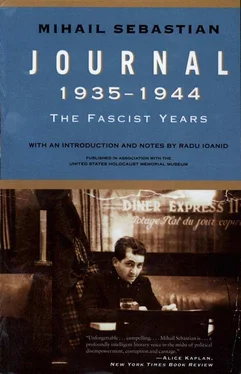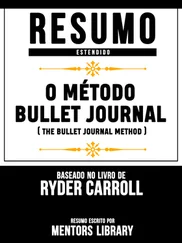Everything is possible — and nothing is easy. Military resistance (however quickly things are over) means destruction, perhaps forced evacuation, perhaps starvation. Capitulation means (who knows!) a repressive German response, in the style of northern Italy.
In both cases, moreover, a pogrom once more becomes possible at any time. Our relative quiet is now a thing of the past. We are moving toward the center of the fire.
In keeping with their familiar practice, the Russians are attacking in the south now that their offensive has slowed somewhat in the center and north. They will push here as strongly and as fast as they can. The Balkans are ripe for things to be wound up; all the pieces are in place. Turkey is ready. Bulgaria (after the amazing coup de théâtre of Bagrianov’s speech 3) is prepared for any change in the game. Together with Tito, and possibly also an Anglo-American landing (which is hardly necessary as things stand), the Russians can push the whole German front toward the Carpathians, Hungary, and Austria.
It cannot be expected that the Germans will rapidly pull back of their own accord. They will try to resist. I don’t know how much longer they can keep it up, but it may be enough for them to exterminate us.
In France the Anglo-American assault is continuing in the south and the north. Everything is unclear in the south: there is no front as such; Anglo-American thrusts have made deep inroads, but it is not said exactly where. The Maquis is a real force, with Annecy and Grenoble apparently in French hands.
In Normandy the battle has shifted right over to the Seine in the east. Paris may fall within the next few hours.
Toulouse has been captured by French forces of the Maquis. Poldy may by now be a free man. But I still fear for him. I’m not sure how firmly the city can be held until Allied regular troops arrive.
How shall I begin? Where shall I begin?
The Russians are in Bucharest.
Paris is free.
Our house in Strada Antim has been destroyed by bombs.
I am as tired as a dog. It is my lot not to be able fully to rejoice at the overwhelming events.
I am writing these lines in a house where some of us have managed to take shelter with whatever belongings we could save from Strada Antim. We have set up here as best we can — for how long, I don’t know. The owners of the house could return at any moment and make us leave.
It would have been impossible to keep a regular journal of the events. It was all quite extraordinary — and then horrifying. Last Wednesday evening we started down an unlikely slope to we knew not where — either to salvation or to disaster.
That night from Wednesday to Thursday — which we spent with Pâtrâscanu, 4Belu, 5and so many others in the house (the “historic house”) on Strada Armeneasca, immediately after the coup d’état 6—was a night of frenzy. All over the city, people shouted with delight. Antonescu had been overthrown in five minutes, the new government formed, and the armistice accepted. We hadn’t had time to drink a glass of champagne to Paris (now back in French hands) when the true avalanche of events reached us.
All night I wrote for the edition of Romania Libera that was due out at dawn. I was glad that events were making me a journalist on the very night of the victory.
In the morning I went to bed dead-tired and hoping to catch up on some sleep. But then the sirens began to wail: the Germans had launched a bombing attack on the city. We then had an unfamiliar kind of air raid, uninterrupted, with no alert or pre-alert, which kept us in our shelters for sixty hours until Saturday evening. And at the last hour, toward Saturday evening, our house was hit. We found ourselves victims just as we were about to cross the finish line. But we are alive.
How afraid we were on Thursday, Friday, and Saturday that the Germans might return to Bucharest, if only for an hour! A single hour would have been all they needed to exterminate us. Each one of us. No one would have escaped.
There are thousands of things to be said. Maybe tomorrow, or the day after tomorrow. Right now I don’t feel capable. I want to sleep. From Wednesday until Saturday evening I didn’t sleep a wink. From Wednesday until Monday I didn’t take my shoes off once. From Wednesday until yesterday evening I didn’t lie once on a bed. I only writhed about on the floor, wherever I could.
I can’t write today either. I am too tired, disfigured with tiredness. My poor stamina is not up to such trials. I’d have to sleep several days on end — to have a schoolboy’s holiday — to recover from it all.
Everywhere there is a terrible (morally terrible) jostling, as people hurry to occupy positions, to assert claims, to establish rights.
I can’t do it. It doesn’t interest me. I don’t want to know. The best thing is to wait. You can’t speak now, only shout. It is true that for years I awaited the moment when I would finally be able to utter a cry of revenge — after so much nausea, so much disgust.
One day I’ll write a book. That is still the best thing for me to do. I’m not a person for meetings and committees. Everyone is summoning me to one — at school, at college, at the writers’ gatherings. What should I do there? What I have to say I’ll say when the time comes. Certainly not today, when nothing can be heard above the shouting.
A parade of Soviet heavy tanks on Bulevardul Carol, beneath the windows of the house where we have taken refuge. It is an imposing sight. Those tired, dusty, rather badly dressed men are conquering the world. IIs ne payent pas d’apparence 7—but they are conquering the world.
Afterward a long column of trucks full of Romanian soldiers: former prisoners-of-war in Russia, now armed and equipped and fighting in the Red Army. They are young and happy, with excellent equipment. You can see they are not coming from battle. They are a parade unit, probably kept in waiting for the entry into Bucharest.
People in the street are still bewildered. Great explosions of enthusiasm, but also a certain reserve. Many passersby look askance at “the applauding yids.”
Romania will regain its senses when the problem of responsibility is posed in earnest. Otherwise it would all be too cheap.
I myself am still unable to take a direct role in what is happening. To be a disaster victim is much graver than I used to think when I passed burnt-out houses and hurriedly glanced at them in sympathy.
A house is a factory. You find everything in its place, as you would a screw or a part of a machine. When this organization collapses, you are surrounded by chaos.
I don’t know how, when, and where I’ll be able to rebuild any kind of normal life, one that allows me to concern myself with other matters. For the time being, everything is in abeyance.
I am happy that my experience at Romania Libera ended quickly, before I signed up for anything. I’d have found it impossible to work in that regime of secret committees. Indoctrinated stupidity is harder to take than the ordinary kind. Patrascanu attracted me for his human side. When we reached agreement about the paper four weeks ago, at Ulea’s farm, 8I can’t say I didn’t feel some regret that I would be returning to journalism. But I welcomed it insofar as it gave me an immediate way of saying aloud all the things I had kept silent about, gritting my teeth, for five long years.
In three days, after Graur and his crew pushed their way in, 9I realized that I would be joining an editorial committee terrorized by conformism. No, no, it’s better for me to write plays.
Читать дальше











